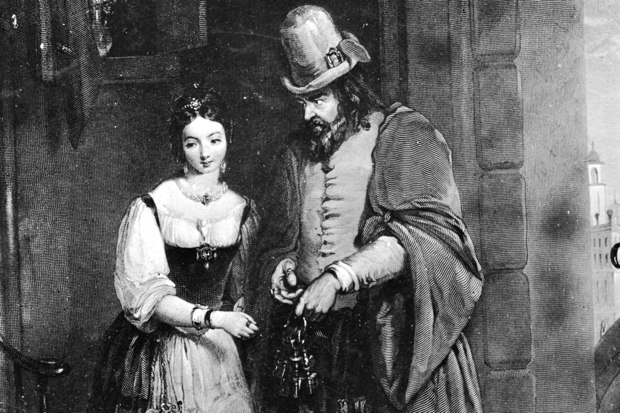You may this weekend have attended one of hundreds of events around the country to celebrate the 400th anniversary of Willliam Shakespeare’s death in 1616.
Few writers have ever caught our imagination like the Bard of Avon. Many of you will have studied his plays at secondary school, examining their universal themes of love, revenge, sorrow and comedy. But now personal finance is on the National Curriculum (it forms part of citizenship for 11-16-year-olds), could works such as Romeo and Juliet, Twelfth Night and The Merchant of Venice be used to educate children about managing their money? And can adults aiming to pay off debts and save for the future still learn anything from Shakespeare’s musings on money?
One of my favourite Shakespeare money quotes is from Iago (Othello, Act II, scene iii):
‘Poor and content is rich, and rich enough,
But riches fineless is as poor as winter
To him that ever fears he shall be poor.
Good heaven, the souls of all my tribe defend
From jealousy!’
The first line conveys the importance of frugality, which for many is the only way to make sure we can save enough for our retirements. I also like the final line’s message about not trying to keep up with the Joneses.
There are hundreds more quotes about money in Shakespeare’s enormous body of work – but perhaps not as many memorable ones as you would expect from 34,895 speeches in 37 plays, plus 154 sonnets.
Shakespeare seemed more concerned with the themes of love, revenge, comedy, ambition and violence than what we do with the money in our pockets. The Merchant of Venice, in which the plot hinges on a large loan provided by an abused Jewish moneylender, is perhaps the only ‘money’ play.
But the quote that first springs to mind when we think of Shakespeare musing on money issues, ‘Neither a borrower nor a lender be’, is actually from Hamlet, Act 1, Scene iii.
And in the context of today’s growing popularity of peer-to-peer lending, it is perhaps the one that doesn’t endure so well. What would the Bard have made of peer-to-peer lending? This is the practice of lending money to individuals or businesses through online services that match lenders directly with borrowers. Starved by rock bottom interest rates many savers are turning to peer-to-peer lenders for better rates on their money.
Before Shakespeare’s time borrowing or lending money was seen as sinful and banned by the Christian Church. But Queen Elizabeth 1’s Parliament decided to legalise money-lending – as long as interest rates weren’t over 10 per cent, which would have been viewed as usury.
As someone who has worked himself into the ground, Shakespeare found easy access to credit abhorrent and had little sympathy for people who got into debt. ‘I can get no remedy against this consumption of the purse. Borrowing only lingers and lingers it out, but the disease is incurable.’ {Henry IV Part 2, Act 1, Scene ii}.
Many of us today won’t necessarily agree with this view. It’s accepted that if people work hard and if they are on top of their finances and can afford to pay it then it’s ok to take out a loan – to finance a much-needed new car, for instance. And the yoke of long-term mortgage debt is the only way to eventual home ownership.
Would we agree with Shakespeare’s strong stance on gambling being off limits? ‘O, that way madness lies; let me shun that.’ (King Lear, Act III, Scene iv). Yes, probably, excepting any holdings in Premium Bonds, the UK’s most popular financial product with the chance to win a £1 million jackpot, or our weekly flutter on a Lotto ticket.
As for our May bank holiday plans for DIY, Shakespeare seems to consider this a waste of time rather than a worthy investment. ‘Why so large a cost, having so short a lease, does thou upon your fading mansion spend?’ {Sonnet 146}
But some of the Bard’s money musings have weathered the centuries much better. ‘You pay a great deal too dear for what’s given freely,’ says Camillo to Archidamus in A Winter’s Tale, Act 1, Scene i. Here it is not too difficult to think of today’s lousy current account rates or high charges on actively managed investment funds that are actually closet index trackers. This quote is as relevant today as it was 400 years ago.
Moira O’Neill is editor of Moneywise and moneywise.co.uk






Comments